
Providing Michigan Residents with the Tools for Gardening Successfully
DOWNLOADJuly 12, 2023 - Michigan State University Extension
Impacts
- 45 gardening articles published
- 32,711 article views in 2022
- The Smart Gardening with Vegetables 101 online course has helped over 1,700 individuals reduce chemical inputs and adopt pollinator protection in their vegetable gardens.
- Extension Master Gardeners contribute an economic value of $3,067,030 of service on 827 activities across the state.
- Over 4,700 individuals received gardening information and advice by using MSU Extension's Lawn and Garden Hotline and Ask Extension, which are staffed by educators and volunteers.
Priority Areas
The Michigan State University (MSU) Extension consumer horticulture team educates Michigan residents about gardening practices that diversify landscapes, reduce chemical inputs and enhance edible food production. Our target audience includes all adult Michigan residents who grow plants in large gardens, outdoor containers or inside apartments and houses. This population includes individuals who rely heavily on electronic resources, households who participate in community events and farmers markets, as well as people in rural areas and those lacking high-speed internet.
Getting Information to a Large Audience of Gardeners
Reaching a potential audience of seven million adults requires creative solutions. To ensure MSU Extension gardening resources are provided equitably in Michigan, consumer horticulture educators use a variety of methods. First, educators invest time to develop online curricula and programs such as Smart Gardening with Vegetables 101, Backyard Fruit 101, Pruning for Smart Gardeners and Cabin Fever Conversations that are available statewide and beyond. These are examples of programs available virtually and on demand. Each program fills a need, helping beginners to advanced gardeners, and aims to improve knowledge of horticultural practices and encourage the use of integrated pest management.
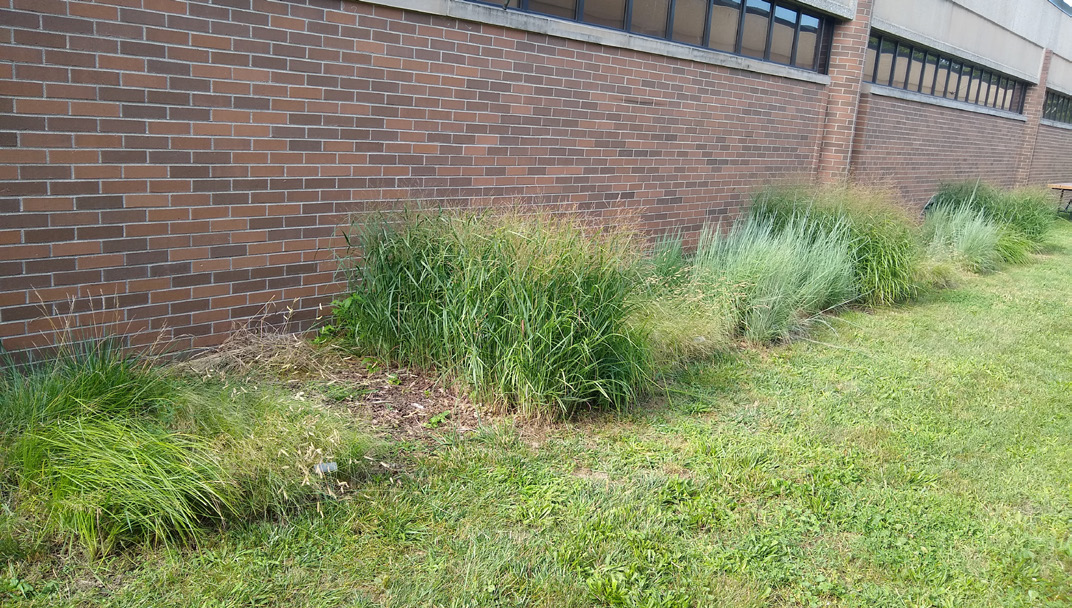
The consumer horticulture team also holds local programs that cover a variety of topics such as pruning shrubs, and growing herbs and vegetables for beginners. These programs include basic and advanced topics offered to various community organizations including underrepresented groups. One of these community partnerships is with Edible Flint, an organization that provides low-cost garden kits and food donations to improve food access to Flint and Genesee County residents. MSU Extension works with Edible Flint to offer urban gardening classes and hosts a pollinator garden at one of their gardens.
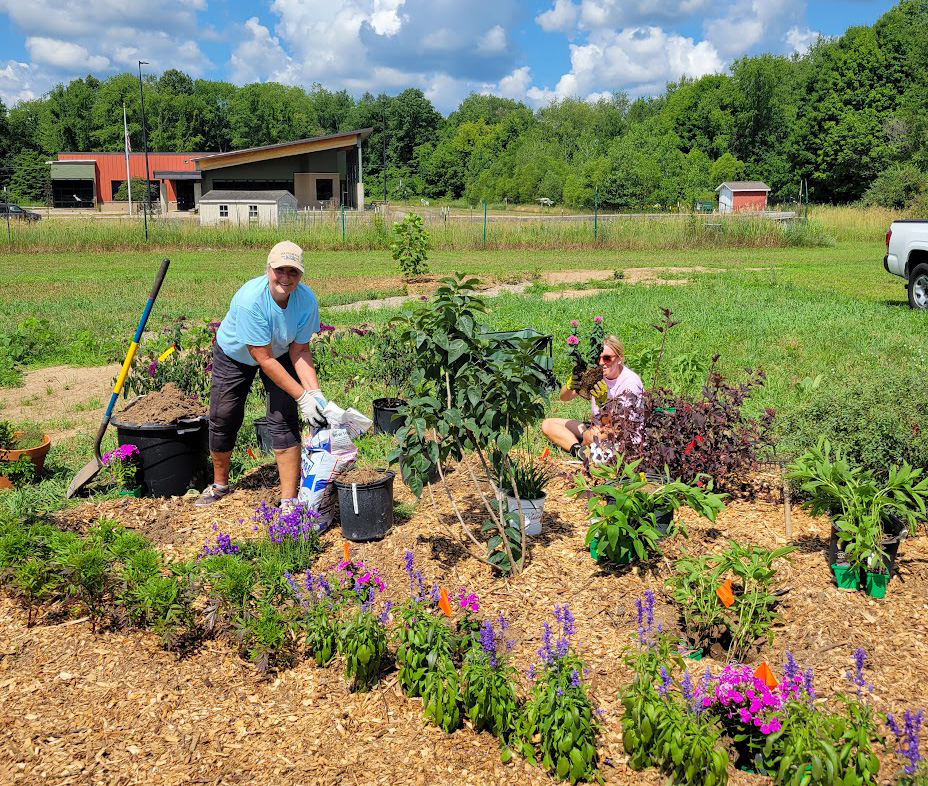
Smart Gardening with Vegetables 101 is an online course that offers an additional outlet to reach newer vegetable gardeners across the state. This well-received, introductory course teaches sustainable practices that help gardeners succeed in growing their own vegetables. It has reached over 1,700 individuals to date and has led gardeners to reduce excess nutrient and chemical inputs and adopt pollinator-protection practices. This program aligns with the consumer horticulture team’s Smart Gardening initiative, which teaches gardeners to use environmentally friendly gardening techniques, choose plants adapted to Michigan’s climate and protect Michigan’s water resources. Smart Gardening has become a popular marketing tool to disseminate information online, in print and through other types of media.
New in 2022, consumer horticulture educators set up smart habitats at locations in the Upper Peninsula, west Michigan, the Saginaw Valley region, Mid- Michigan and the Detroit Metropolitan area. Smart habitat sites use interpretive signage and demonstrate plantings of native plants, ornamental grasses, pollinators and container gardening (see photos 1–3). With funding from a U.S. Department of Agriculture (USDA) grant, each of these six sites offered events and resources on plant maintenance according to the theme of the garden.
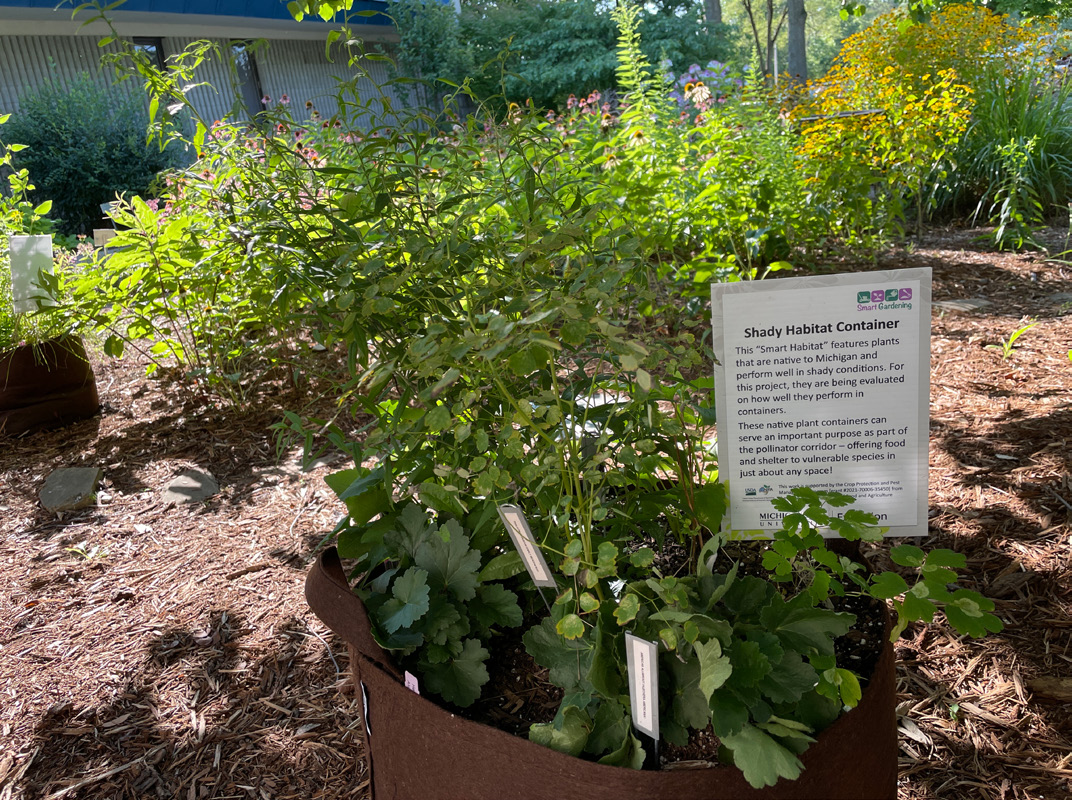
The consumer horticulture team also disseminates gardening resources through publication of MSU Extension articles. These articles are high impact, remain relevant over time and are sometimes picked up by news media who further broadcast various topics. In 2022, we published 45 articles that received 32,711 views (see Table 1). Gardeners in Michigan and other states and countries find these articles through subscriptions to MSU Extension newsletters, postings on social media and searches on other web platforms.
| Table 1. Most-Viewed Extension Articles Co-Authored by Consumer Horticulture Staff |
|
|
| Article Name | URL |
Number of page view in 2022 |
| Spring Fertilization of Garden Fruits |
https://www.canr.msu.edu/news/spring_fertilization_of_garden_fruits |
2,926 |
| Pollinator Supportive Trees and Shrubs for Farm and Orchard Windbreaks |
https://www.canr.msu.edu/news/pollinator-supportive-trees-and-shrubs-for-farm-and-orchard-windbreaks |
2,128 |
| Frost-Free Dates | 1,844 | |
| Drive-By Botany: Orange Daylily and White Sweet-Clover |
https://www.canr.msu.edu/news/drive-by-botany-orange-daylily-and-white-sweet-clover |
1,809 |
| Taming the Monster: How to Prune Overgrown Grapevines |
https://www.canr.msu.edu/news/how-to-prune-overgrown-grapevines |
1,720 |
In-person programming at home and garden shows and other public venues related to plants and crops play a critical role in reaching people. In 2022, MSU Extension educators hosted outreach booths at dozens of locations including the West Michigan and Lansing Home and Garden shows, the Michigan State Fair, Blake’s Lavender Festival, the Upper Peninsula State Fair, and other smaller community events and farmers markets across Michigan. In total, Smart Gardening information reached nearly 30,000 gardeners. Eighty-six Extension Master Gardeners participated by answering gardening questions, directing the public to MSU Extension resources, and distributing Smart Gardening tip sheets and highlighting their availability online. Educator and volunteer participation at programs raised awareness about MSU Extension resources and extended our capacity to reach Michigan communities.
Training Volunteers to Help Educate Michiganders About Gardening
The consumer horticulture team extends the capacity of educating Michigan communities about sustainable gardening through the Diagnostic Academy. With funding from the USDA’s Extension and Implementation Program area, MSU Extension educators offered hands-on, participatory training to 24 Extension Master Gardeners on diagnosing plant health care and insect concerns. Specialists with backgrounds in entomology, weed science and plant pathology shared scientific information and examples of the types of issues that gardeners regularly report. This included problem solving and mitigating concerns such as annual weeds in lawns, insects feeding on roses and identification of undetermined black spots on maple leaves (see photos 4 and 5).
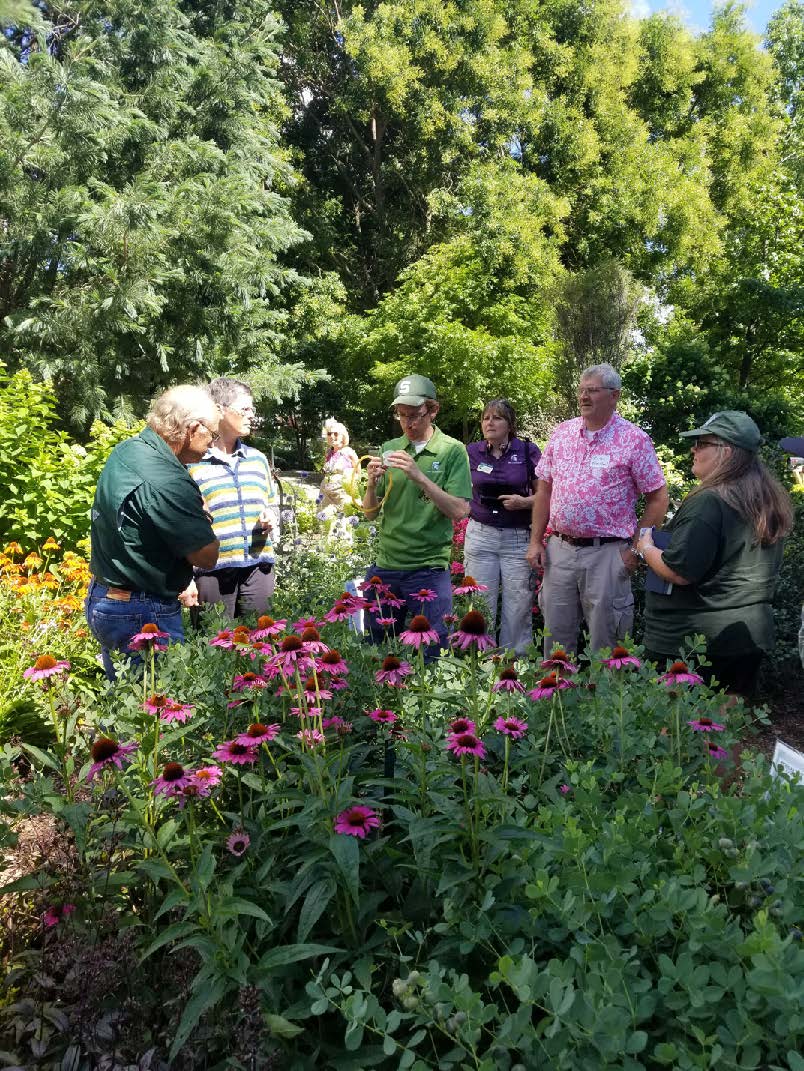
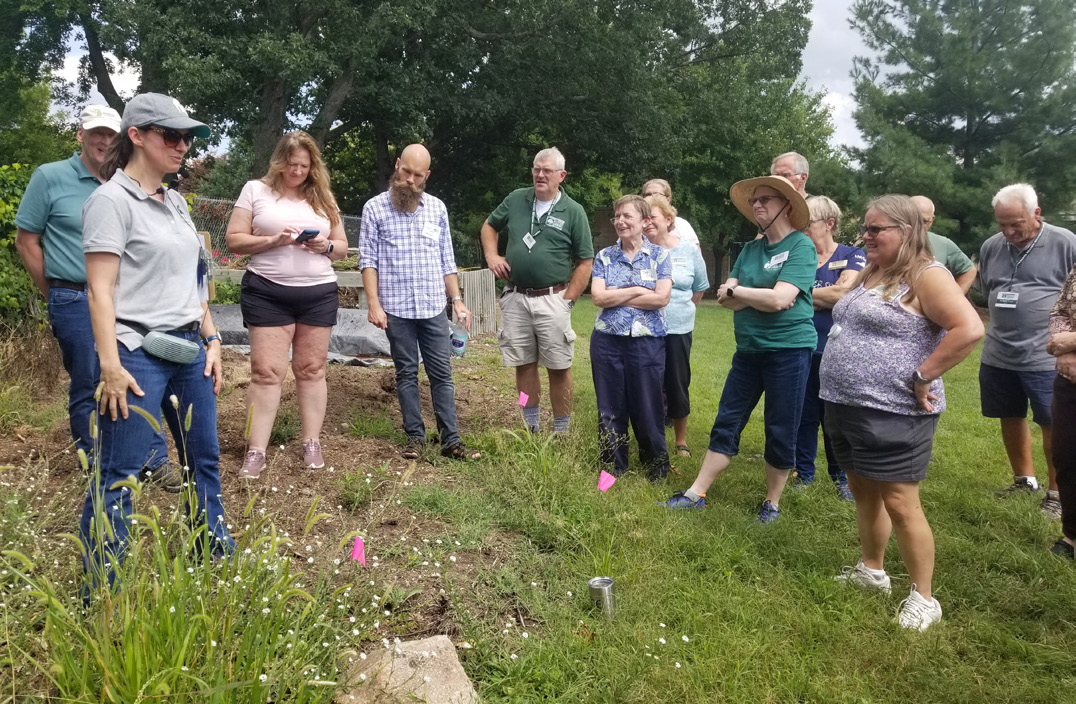
The main goal of the Diagnostic Academy was to recruit and train volunteers to serve on MSU’s diagnostic responder team. Upon completing this course, 13 attendees started participating as responders on the Lawn and Garden Hotline and Ask Extension. These new volunteers receive regular support and coaching from their local educators and through continuing education from specialists and faculty members within MSU. Volunteers are excited to share information on vegetables, flowers and fruit with the public. In addition, an increasing number of responders allows MSU Extension staff to allocate more time for local programming.
MSU Extension Master Gardener volunteers are pivotal in expanding the capacity to reach a much broader audience than the consumer horticulture team alone. Over 2,400 volunteers completed 28,534 hours of continued education and contributed 102,450 volunteer hours, amounting to an economic value of $3,067,030 of service on 827 activities across the state. Volunteer activities address community improvement, reducing food insecurity, environmental stewardship and developing youth through gardening.
Extension Master Gardeners are equipped through advanced training to help disseminate research-based gardening education to Michigan residents. In 2022, the consumer horticulture team and Extension Master Gardeners answered 51% of the nearly 6,000 Ask Extension questions and provided guidance to 1,753 callers on the Lawn and Garden Hotline. Whether serving as a diagnostic responder or sharing Smart Gardening advice at a public event, the team of nearly 2,000 volunteers multiply the efforts of every team member.



 Print
Print Email
Email




